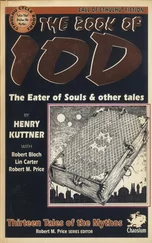Charles Henry Mackintosh - Notes on the Book of Deuteronomy, Volume I
Здесь есть возможность читать онлайн «Charles Henry Mackintosh - Notes on the Book of Deuteronomy, Volume I» — ознакомительный отрывок электронной книги совершенно бесплатно, а после прочтения отрывка купить полную версию. В некоторых случаях можно слушать аудио, скачать через торрент в формате fb2 и присутствует краткое содержание. Жанр: foreign_prose, foreign_antique, на английском языке. Описание произведения, (предисловие) а так же отзывы посетителей доступны на портале библиотеки ЛибКат.
- Название:Notes on the Book of Deuteronomy, Volume I
- Автор:
- Жанр:
- Год:неизвестен
- ISBN:нет данных
- Рейтинг книги:4 / 5. Голосов: 1
-
Избранное:Добавить в избранное
- Отзывы:
-
Ваша оценка:
- 80
- 1
- 2
- 3
- 4
- 5
Notes on the Book of Deuteronomy, Volume I: краткое содержание, описание и аннотация
Предлагаем к чтению аннотацию, описание, краткое содержание или предисловие (зависит от того, что написал сам автор книги «Notes on the Book of Deuteronomy, Volume I»). Если вы не нашли необходимую информацию о книге — напишите в комментариях, мы постараемся отыскать её.
Notes on the Book of Deuteronomy, Volume I — читать онлайн ознакомительный отрывок
Ниже представлен текст книги, разбитый по страницам. Система сохранения места последней прочитанной страницы, позволяет с удобством читать онлайн бесплатно книгу «Notes on the Book of Deuteronomy, Volume I», без необходимости каждый раз заново искать на чём Вы остановились. Поставьте закладку, и сможете в любой момент перейти на страницу, на которой закончили чтение.
Интервал:
Закладка:
Here was their warrant for entering upon immediate possession. The Lord their God had given them the land and set it before them. It was theirs by His free gift—the gift of His sovereign grace, in pursuance of the covenant made with their fathers. It was His eternal purpose to possess the land of Canaan through the seed of Abraham His friend. This ought to have been enough to set their hearts perfectly at rest, not only as to the character of the land, but also as to their entrance upon it. There was no need of spies. Faith never wants to spy what God has given. It argues that what He has given must be worth having, and that He is able to put us in full possession of all that His grace has bestowed. Israel might have concluded that the same hand that had conducted them "through all that great and terrible wilderness" could bring them in and plant them in their destined inheritance.
So Faith would have reasoned; for it always reasons from God down to circumstances, never from circumstances up to God. "If God be for us, who can be against us?" This is Faith's argument, grand in its simplicity and simple in its moral grandeur. When God fills the whole range of the soul's vision, difficulties are little accounted of. They are either not seen, or, if seen, they are viewed as occasions for the display of divine power. Faith exults in seeing God triumphing over difficulties.
But, alas! the people were not governed by faith on the occasion now before us, and therefore they had recourse to spies. Of this Moses reminds them, and that, too, in language at once most tender and faithful.—"And ye came near unto me, every one of you , and said, 'We will send men before us, and they shall search us out the land, and bring us word again, by what way we must go up, and into what cities we shall come.'"
Surely, they might well have trusted God for all this. The One who had brought them up out of Egypt, made a way for them through the sea, guided them through the trackless desert, was fully able to bring them into the land. But no; they would send spies, simply because their hearts had not simple confidence in the true, the living, the almighty God.
Here lay the moral root of the matter; and it is well that the reader should thoroughly seize this point. True it is that, in the history given in Numbers, the Lord told Moses to send the spies; but why? Because of the moral condition of the people. And here we see the characteristic difference and yet the lovely harmony of the two books. Numbers gives us the public history, Deuteronomy the secret source of the mission of the spies; and as it is in perfect keeping with Numbers to give us the former, so it is in perfect keeping with Deuteronomy to give us the latter. The one is the complement of the other. We could not fully understand the subject had we only the history given in Numbers. It is the touching commentary given in Deuteronomy which completes the picture. How perfect is Scripture! All we need is the eye anointed to see and the heart prepared to appreciate its moral glories.
It may be, however, that the reader still feels some difficulty in reference to the question of the spies. He may feel disposed to ask how it could be wrong to send them when the Lord told them to do so. The answer is, The wrong was not in the act of sending them when they were told, but in the wish to send them at all. The wish was the fruit of unbelief, and the command to send them was because of that unbelief.
We may see something of the same in the matter of divorce in Matthew xix.—"The Pharisees also came unto Him, tempting Him, and saying unto Him, 'Is it lawful for a man to put away his wife for every cause?' And He answered and said unto them, 'Have ye not read, that He which made them at the beginning made them male and female, and said, For this cause shall a man leave father and mother, and shall cleave to his wife; and they twain shall be one flesh? Wherefore they are no more twain, but one flesh. What therefore God hath joined together, let not man put asunder.' They say unto Him, 'Why did Moses, then, command to give a writing of divorcement, and to put her away? He saith unto them, 'Moses because of the hardness of your hearts suffered you to put away your wives; but from the beginning it was not so.'"
It was not in keeping with God's original institution, or according to His heart, that a man should put away his wife; but, in consequence of the hardness of the human heart, divorce was permitted by the lawgiver. Is there any difficulty in this? Surely not; unless the heart is bent on making one. Neither is there any difficulty in the matter of the spies. Israel ought not to have needed them: simple faith would never have thought of them. But the Lord saw the real condition of things and issued a command accordingly; just as, in after ages, He saw the heart of the people bent on having a king, and He commanded Samuel to give them one.—"And the Lord said unto Samuel, 'Hearken unto the voice of the people in all that they say unto thee; for they have not rejected thee, but they have rejected Me, that I should not reign over them. According to all the works which they have done since the day that I brought them up out of Egypt even unto this day, wherewith they have forsaken Me, and served other gods, so do they also unto thee. Now therefore hearken unto their voice: howbeit yet protest solemnly unto them, and shew them the manner of the king that shall reign over them.'" (1 Sam. viii. 7-9.)
Thus we see that the mere granting of a desire is no proof whatever that such desire is according to the mind of God. Israel ought not to have asked for a king. Was not Jehovah sufficient? was not He their King? could not He, as He had ever done, lead them forth to battle and fight for them? Why seek an arm of flesh? why turn away from the living, the true, the almighty God to lean on a poor fellow-worm? What power was there in a king but that which God might see fit to bestow upon him? None whatever. All the power, all the wisdom, all real good, was in the Lord their God; and it was there for them—there at all times, to meet their every need. They had but to lean upon His almighty arm—to draw upon His exhaustless resources, to find all their springs in Him.
When they did get a king, according to their hearts' desire, what did he do for them? "All the people followed him trembling." The more closely we study the melancholy history of Saul's reign, the more we see that he was, almost from the very outset, a positive hindrance rather than a help. We have but to read his history, from first to last, in order to see the truth of this. His whole reign was a lamentable failure, aptly and forcibly set forth in two glowing sentences of the prophet Hosea,—"I gave thee a king in Mine anger, and took him away in My wrath." In a word, he was the answer to the unbelief and self-will of the people, and therefore all their brilliant hopes and expectations respecting him were most lamentably disappointed. He failed to answer the mind of God, and, as a necessary consequence, he failed to meet the people's need. He proved himself wholly unworthy of the crown and sceptre, and his ignominious fall on Mount Gilboa was in melancholy keeping with his whole career.
Now, when we come to consider the mission of the spies, we find it too, like the appointment of a king, ending in complete failure and disappointment. It could not be otherwise, inasmuch as it was the fruit of unbelief. True, God gave them spies, and Moses, with touching grace, says, "The saying pleased me well; and I took twelve men of you, one of a tribe,"—it was Grace coming down to the condition of the people and consenting to a plan which was suited to that condition; but this by no means proves that either the plan or the condition was according to the mind of God. Blessed be His name, He can meet us in our unbelief though He is grieved and dishonored by it. He delights in a bold, artless faith; it is the only thing in all this world that gives Him His proper place. Hence, when Moses said to the people, "Behold, the Lord thy God hath set the land before thee: go up and possess it, as the Lord God of thy fathers hath said unto thee; fear not, neither be discouraged," what would have been the proper response from them? Here we are: lead on, almighty Lord—lead on to victory. Thou art enough. With Thee as our leader, we move on with joyful confidence. Difficulties are nothing to Thee, and therefore they are nothing to us. Thy word and Thy presence are all we want. In these we find at once our authority and power. It matters not in the least to us who or what may be before us: mighty giants, towering walls, frowning bulwarks—what are they all in the presence of the Lord God of Israel, but as withered leaves before the whirlwind? Lead on, O Lord.
Читать дальшеИнтервал:
Закладка:
Похожие книги на «Notes on the Book of Deuteronomy, Volume I»
Представляем Вашему вниманию похожие книги на «Notes on the Book of Deuteronomy, Volume I» списком для выбора. Мы отобрали схожую по названию и смыслу литературу в надежде предоставить читателям больше вариантов отыскать новые, интересные, ещё непрочитанные произведения.
Обсуждение, отзывы о книге «Notes on the Book of Deuteronomy, Volume I» и просто собственные мнения читателей. Оставьте ваши комментарии, напишите, что Вы думаете о произведении, его смысле или главных героях. Укажите что конкретно понравилось, а что нет, и почему Вы так считаете.












